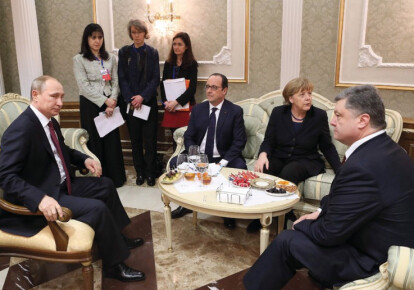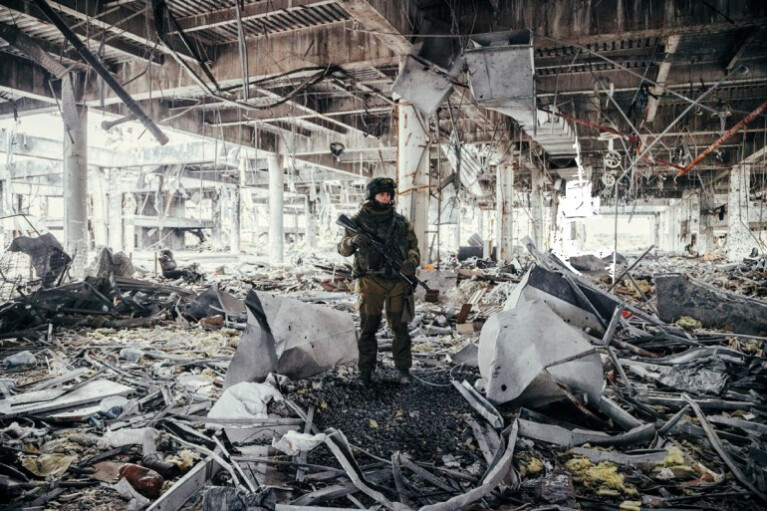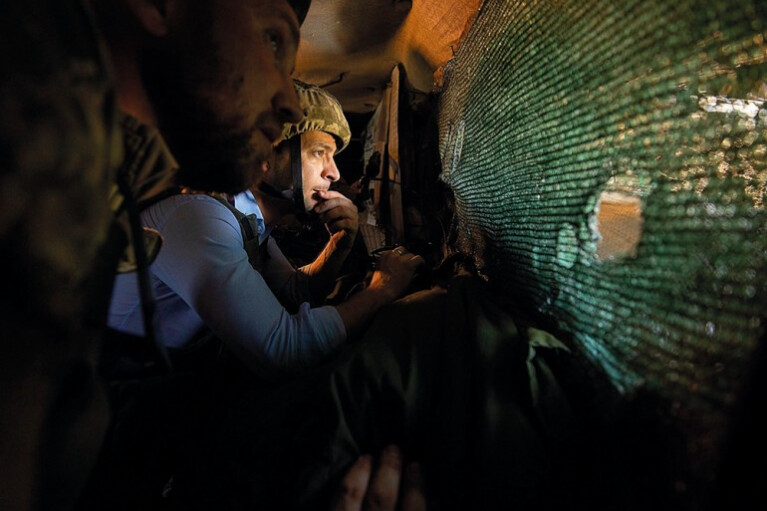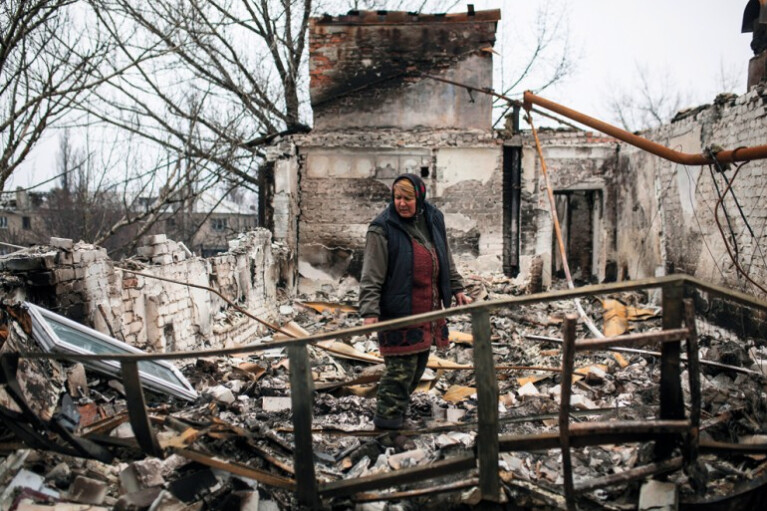How Russia, Ukraine and the West used the five years of the ""Minsk pause"

Five years ago the Minsk Arrangements created a new geopolitical situation in Europe, first and foremost Eastern, and practically speaking at the NATO borders. Formally, as well as conceptually, Ukraine, Russia and the West became the parties to that extremely conditional - in terms of the real frontline situation - armistice. How and for what did they use that long period? After all, it is obvious that Moscow will not cease its activities aimed at destruction of the current world order; and given the pitiful internal economic situation and widespread political destabilization it is able to get back to aggressive actions at any moment.
Restraint and stabilization
In 2014, the Russian armed intervention in Ukraine was often seen as a reaction to the expansion of the Western civilization system to the East, so it is logical to start particularly with the collective West. Today it can be stated that it has never imposed sanctions against Russia sufficient to prevent further aggressive behavior of this country.
Sanctions rather limited the Russian Federation welfare level, set the cap for its development. Also, the West - first of all, the countries of North America and (to a lesser extent) Eastern Europe - has eventually provided Ukraine with lethal weapons, both small and heavy, and continues to enhance and modernize its defense capabilities. Collectively, all these years, the international donors, the EU and America have kept Ukraine's treasury, budget and infrastructure afloat.
The West's awakening of the misjudgement, driven by the belief that Russia's nouveau riches would not risk by the granted in the late 1990s permit for their attachement to the global elite in exchange for insane money from energy exports, was not sudden. After all, this awakening has not been in place to a full extent as of now. Nevertheless, the "Minsk pause" was an opportunity for the West to survive that stress by creating the illusion of the possibility of at least partial return to the usual order. However, later on it transformed into an attribute of "a new normality", permanent low-intensity local conflict in Europe with participation of a nuclear-weapon state.
This "new normality" in some ways made the West do the splits. On the one hand, despite the slow pace of decision-making in democratic countries, not to mention their collective blocs, the process of acknowleding the danger and counteracting it has got off the ground. However, that process turned to be uneven, as the USA had only really got moving after the scandalous election of 2016. At that time, it turned out that the Russian hackers and agents of influence had been acting easily in America. Today, more or less, we may talk, for example, about the modernization of cyber defense systems - no wonder the USA has threatened Russia with a remote power outage. Defense budgets and related industries are growing significantly.
On the other hand, the West ceased to give the impression of not even a monolithic, but an ordinary unity. In several of its influential countries changes in the society moods took place, nationalists, mostly isolationists, came to power; and the horns of the Russian special services and mafia often stick out behind their figures.
Formless unity
It seems that a wave of nationalism has in Great Britain alone brought up politicians who can challenge the criminal-terrorist Moscow regime - such as Borys Johnson. After all, even the European centrists - such as Angela Merkel or Mark Rutte - seem helpless in this relationship, and their countries, after a relatively short pause in 2014-2015, continue to be saturated with the Russian money and agents. Accordingly, at least half of the European countries (the most powerful economies are among them) seek to return to wonted relations with Russia, and Ukraine, with its problems for part of the elites of these countries, is increasingly turning into an irritant which prevents to apply business as usual.
However, Johnson is not alone: he has joined the group of the Scandinavian and Baltic country leaders, Poland and Romania. The Hungarian Prime Minister Viktor Orban, having begun playing Brussels and Beijing "cards", may also potentially join this "anti-Russian coalition", especially as Moscow may soon lose its priority for Budapest. It is significant that we are discussing Europe as well as the USA today in such a tone - that would not have been imagined five years ago.
The lack of genuine unity (it is barely restrained by the EU and the NATO institutions at the highest level) and the triumphs of the narrow-minded nationalism, often at Russian expense, as well as the lure of corruption that generates extra profits for the Western companies in Russia, have led to a counter-offensive of Russia. In particular, by blackmailing the West with the fate of political prisoners in its jails and tempting the funding of the Strasbourg bureaucracy comfortable life, Moscow regained its place in the PACE.
The inert and confusing report of the Special Attorney Robert Mueller on interfering with the American election process is one more point allowing Moscow to evade direct responsibility easily sacrificing such single-use agents as Maria Butina.
Volodymyr Putin has not been accused in patronizing terrorism either in the Netherlands in terms of the MN17 case or in the UK as to the Skripal family case, not to mention direct involvement in these acts (though that may change).
Therefore, for the West, the Russian-Ukrainian conflict remains on the periphery; the West observes it but is not determined to flounce or does not want to do so. The West prepared for the potential Russian aggression despite its (the West's) reluctance to believe in such a possibility. But it is tired of the Russian-Ukrainian conflict. That is the Russian strategy: if the blitzkrieg fails, use the exhaustion method and in parallel promote the corresponding message - Wouldn't it be good if there were no war?
However, the foreign players appropriately use the war as an excuse to force out concessions from Russia. For example, both Erdogan and the German government do that. However, there is also an example of true adherence to principles, and this is Canada. Russia, in its turn, is trying - and not failing - to escape the isolation, using both electoral change in the West and high-profile seekers of either peace or caviar from Berlin and Paris, who visit Moscow. Europe wants to compete with the USA and China, and soon with its ex-"province", the United Kingdom, since it needs money.
Alluring Putin
Despite its tarnished reputation, Russia in this sense remains a kind of Klondike. Therefore, by the way, some venturous European politicians are not much afraid to go to the occupied Crimea so far: the risks are minimal and the profits are guaranteed.
It is worth admitting that often acting brutally, the Kremlin has clear goals and does not abandon plans to get the exclusive zone of influence back. It used the Minsk armistice to further militarize the occupied territories and to upgrade the agents networks, especially in Europe. Moscow is waiting for the West to fall asleep again - and the West hopes that Russia will calm down sooner.
Regarding the information front, in Europe and in the USA Moscow is still somehow masked, yet in Ukraine it acts practically openly - even in the parliament the second largest faction now has a strongly pronounced Russophile-capitulatory character. This, of course, is the result of buying up the media assets in response to the situation in which Russia has lost to Ukraine, failing to force the latter to take decisions necessary for the Kremlin.
So we observe a rear maneuver - particularly since in Ukraine, due to certain national characteristics, it is very easy to create political capital on the authorities criticism. However, the success of the Russians in Ukraine is more of a pyrrhic nature in terms of resources cost and efficiency ratio. Moreover, Russia itself has a weak rear - degrading domestic political situation, weak economy, conflicts with dozens of countries where the companies of Putin's chef Prigozhyn have got spotted and so on.
But in the West the situation looks different - for many representatives of the middle class destroyed by globalization, over the past five years Putin has been increasingly turning into a kind of defender of the ordinary world without "perversions", the one who will cease the dominance of "non-cultural elements", feminists and "reptilians", and Russia looks like a shining example of his success - where all the next but one are oligarchs or women of traditional views. Not least due to that Russia was able to regain some of its positions lost during the acute phase of 2014-2015.
However, the impasse of its efforts seems inevitable - no one is going to share with it; Putin is being tolerated, and they do it for different reasons. Japan, for example, does it because of the northern territories issue. The Germans keep pursuing the interests of their businesses - for example, Siemens, which expands cooperation with Russia every year. Rocket engines and aluminum supplies for Boeing and more will still be relevant for the United States in the next year or two. Therefore, this restoration is of a very specific nature - something like the need to use a railroad in a robbers controlled area. Accordingly, Russia has not been able to build systemic alliances during this time, and will no longer be able to. And not only in the West.
Oriental vector
For example, this can be said of China which today seems to be making far-reaching stakes, because in the meantime it has had ample opportunity to impose its will on Russia, taking advantage of its plight. Actually, this is happening, but the absorption of the Russian state organism by PRC is slow and selective since Beijing has great deal of choice. And the Chinese will soon say their word in the European region. And it does not seem to appeal to everyone - at least because it will sound from Budapest, from the headquarters of "16 + 1" forum set up by China in conjunction with the EU and the Balkans countries under the "One Belt and One Way" initiative.
It should be emphasized that China is firmly taking a line of non-interference in the partner countries" internal affairs, while in the past years there has been a certain deficit from Ukraine concentrated on the Western vector in terms of attracting Tianxia into issues related to strengthening of its own (Ukrainian) international positions.
Although the relations between Kyiv and Beijing are motley, particularly in the military-industrial sphere, as well as in investment protection, while there is a rather positive trend in the international education and information technology sectors - China is interested in maintaining of a certain status quo in Europe and post-Soviet Central Asia.
And Ukraine with its interests completely fits the picture. Of course, on the periphery of such sketches, the global ambitions of our key foreign partner, the United States having chosen PRC as its main rival, appear every now and then. However, even under these conditions, there is room to play on contradictions between the EU and the USA (and soon between the EU and the United Kingdom, as well as the U.S. and the UK) with the use of the Chinese factor. One can even recall those batch agreements signed with China before 2014, since they also have referred to security every once in a while. Of course, such subtle maneuvers require caution, but the world has changed too much in terms of prioritizing national interests to avoid at least similar risks.
Today, Turkish-Ukrainian relations look more lively - widespread defense cooperation has been launched, with even some parity in this case. It is noticeable that Ukraine has managed to use the Crimean Tatar factor, and in addition, the Syrian campaign of Ankara is not least relieving Russia's pressure on our eastern front. It is possible, yet, that Turkey's interest in returning the Crimea to its native Ukrainian harbor today is not as great as it could be. However, sooner or later, Ankara will have to take a side in the global game, and this poses some danger to the Ukrainian alliance system which now looks more or less balanced. However, the southern vector has the most hidden prospects for Ukraine today, at least in accelerating its own economic development.
Another five-year pause?
As for Ukraine, it really created fairly powerful modernized army, its special services were able to increase their efficiency, and an international coalition was formed around the Ukrainian case. But in terms of internal political stability, maturity of the society and its protection against destructive propaganda, Ukraine remains to be weak and, perhaps, even weaker than in 2013-2014. This determines the direction, angle, format and form of Russia's attacks in "the war through other means" which does not violate the Minsk Arrangements. Of course, Ukraine is also waging an information war on Russia, but on an incomparably smaller scale.
The Minsk Arrangements still contain an important plus, i.e. localization of the conflict, and the years since their signing have enabled Ukraine to stabilize and even return to the economic growth which in such circumstances can be considered as a victory. However, the legal web of the Minsk international regime objectively transforms the Russian-Ukrainian conflict into the one that has no real solution without actual surrender of one of the parties (and it does not eliminate for Ukraine the danger of attack from the occupied Crimea, Belarus or from the sea). But in a working democracy such as Ukraine, a surrender will mean an immediate fall of regime, even despite the fatigue of the Ukrainians from the bloodshed created by the Russians.
As for Russia, its behavior is motivated by the attempt of its leadership to keep building the imperial project, i.e. the only one in which the Russian statehood has historically existed, as well as by an obvious sense of hostility inherent to Putin and his entourage and secure media vaccine for the average Russians.
So, theoretically speaking, it is technically easier for Russia to hand over the occupied territories but this is unlikely to happen; and now it is easy to see in Minsk the continuation of the same dynamics and logic of negotiations that have taken place before. As such, the following scenario is not excluded: we will have to wait for another five years during which some of the players directly or indirectly involved in holding a shaky Minsk balance will not only use this time optimally, but also will make a claim for victory in the conflict the prize for which is the key to domination in Europe.
Read more:



